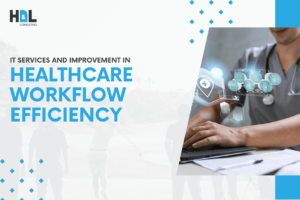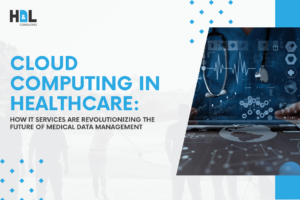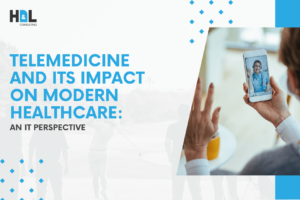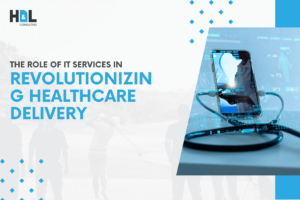The rapid advancement of artificial intelligence (AI) is revolutionizing the way we work, creating new opportunities and challenges for businesses and employees alike. As AI continues to evolve, it is reshaping industries, automating tasks, and enabling new forms of collaboration between humans and machines. At H&L Consulting, with over a decade of experience, we specialize in mobile applications, IoT integration, Robotic Process Automation (RPA), healthcare, sports applications, and cloud infrastructure. We also partner with a leading golf equipment manufacturer to bring innovative solutions to the sports industry. This blog post explores the impact of AI on the future of work, highlighting the key trends, opportunities, and skills needed to thrive in this AI-driven world.
The Rise of AI in the Workplace
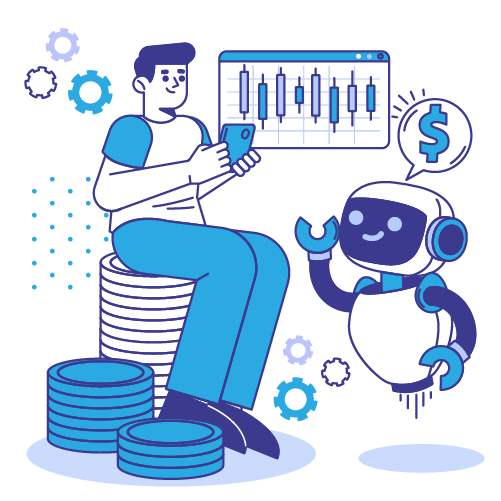
Automation and Collaboration
AI is increasingly being integrated into various aspects of the workplace, from automating repetitive tasks to enhancing decision-making processes. Automation and collaboration are two key areas where AI is making a significant impact. By automating mundane and repetitive tasks, AI allows employees to focus on more strategic and creative activities, thereby increasing productivity and job satisfaction. Additionally, AI-powered tools and platforms are facilitating collaboration among team members, regardless of their location, by providing real-time data, insights, and communication capabilities.
Benefits of Automation
Increased Efficiency: Automation streamlines processes, reduces errors, and speeds up task completion.
Cost Savings: By automating routine tasks, businesses can reduce labor costs and allocate resources more effectively.
Improved Accuracy: AI-driven automation minimizes human errors, leading to more accurate and reliable outcomes.
Automation is a cornerstone of AI applications in the workplace. By offloading repetitive tasks to machines, employees can dedicate their time and energy to more complex and meaningful work. For instance, in healthcare, AI can automate administrative tasks such as scheduling appointments and managing patient records, allowing healthcare professionals to focus on patient care. In the manufacturing sector, AI-driven robots can handle repetitive assembly line tasks, improving production efficiency and reducing the risk of human error.
Enhancing Collaboration with AI
Real-Time Communication: AI-powered chatbots and communication tools enable seamless interaction among team members, regardless of their geographical location.
Data-Driven Insights: AI analyzes vast amounts of data to provide actionable insights, helping teams make informed decisions quickly.
Enhanced Creativity: By automating routine tasks, employees can focus on creative problem-solving and innovation.
Collaboration is another area where AI is making significant strides. AI-powered collaboration tools are breaking down geographical barriers, enabling teams to work together more effectively. For example, AI-driven project management platforms can track project progress, assign tasks, and provide real-time updates, ensuring that team members are always on the same page. Additionally, AI can analyze communication patterns within teams to identify potential bottlenecks and suggest ways to improve workflow and collaboration.
Job Transformation with AI
The Changing Landscape of Work
AI is transforming the job market by altering the nature of work and the skills required to succeed. While some jobs may be displaced by automation, new roles are emerging that require a blend of technical and human skills. Understanding these changes is crucial for both employees and employers to navigate the future of work effectively.
Emerging Roles in an AI-Driven Workforce
AI Specialists: As AI adoption grows, there is an increasing demand for professionals who can develop, implement, and maintain AI systems.
Data Analysts: With the proliferation of data, the need for skilled data analysts to interpret and leverage information is rising.
Human-AI Interaction Designers: Designing intuitive and effective interfaces for human-AI interaction is becoming a critical role.
Future Job Skills and AI
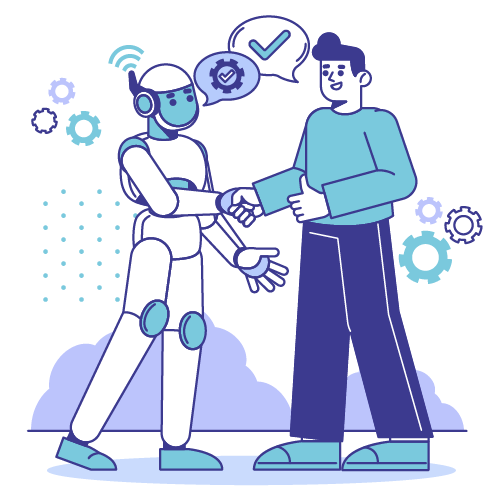
Skills for the AI-Driven Workforce
As AI continues to reshape the job market, the skills required to succeed are evolving. Future job skills will need to combine technical proficiency with human-centric abilities.
Technical Skills
AI and Machine Learning: Understanding the fundamentals of AI and machine learning is essential for many future roles.Data Literacy: The ability to analyze and interpret data is becoming a critical skill in the AI-driven workplace.
Programming and Coding: Knowledge of programming languages used in AI development, such as Python, is increasingly valuable. Technical skills are crucial in the AI-driven workforce. A solid understanding of AI and machine learning concepts is essential for professionals working with AI technologies. This includes knowledge of various algorithms, data processing techniques, and the ability to develop and implement AI models. Data literacy is another important skill, as the ability to analyze and interpret data is critical in making informed decisions. Professionals need to be comfortable working with large datasets, using data analysis tools, and interpreting the results to draw meaningful conclusions. Programming and coding skills are also valuable, particularly for those involved in developing AI applications. Knowledge of programming languages such as Python, R, and Java, as well as experience with AI frameworks like TensorFlow and PyTorch, is increasingly sought after in the job market.
Human-Centric Skills
Critical Thinking: The ability to analyze complex problems and make sound decisions is crucial in an AI-enhanced environment.
Emotional Intelligence: Understanding and managing emotions, both one’s own and others’, is key to effective collaboration and leadership.
Adaptability: The capacity to adapt to new technologies and changing work environments is essential for future success.
In addition to technical skills, human-centric skills are equally important in the AI-driven workplace. Critical thinking and problem-solving abilities are essential, as professionals need to navigate complex challenges and make informed decisions. Emotional intelligence, or the ability to understand and manage emotions, is crucial for effective collaboration and leadership. This skill helps individuals build strong relationships, manage conflicts, and create a positive work environment. Adaptability is another key skill, as the rapid pace of technological change requires individuals to be flexible and open to learning new technologies and methodologies. Being adaptable allows professionals to stay relevant and thrive in an ever-evolving job market.
Preparing for the Future
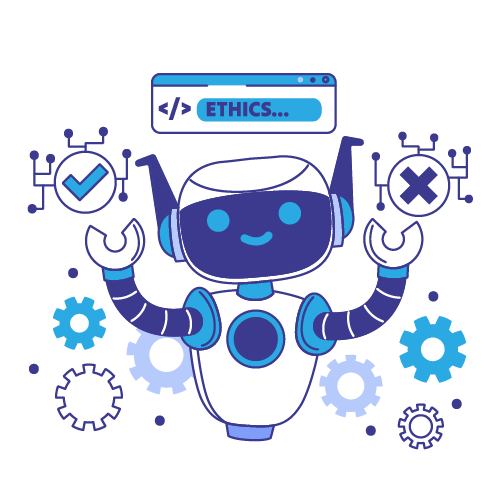
To thrive in an AI-driven workforce, individuals and organizations must be proactive in developing the necessary skills and embracing continuous learning.
Individual Strategies
Lifelong Learning: Embrace a mindset of continuous learning to stay updated with the latest AI advancements and industry trends.
Skill Development: Invest in acquiring new skills that are relevant to the evolving job market.
Networking: Engage with professional communities and networks to share knowledge and gain insights into emerging opportunities.
Individuals can prepare for the future by adopting a mindset of lifelong learning. Staying updated with the latest AI advancements and industry trends ensures that professionals remain competitive in the job market. Investing in skill development, particularly in areas related to AI and data analysis, is also crucial. Additionally, networking with peers and industry professionals can provide valuable insights into emerging opportunities and best practices.
Organizational Strategies
Talent Development: Organizations should invest in training and development programs to equip employees with the skills needed for the future.
AI Integration: Businesses must strategically integrate AI into their operations to enhance productivity and innovation.
Culture of Innovation: Foster a culture that encourages experimentation, creativity, and collaboration to leverage the full potential of AI.
Organizations play a critical role in preparing for the future of work. Investing in talent development programs that focus on AI-related skills can help businesses build a workforce capable of leveraging AI technologies.
Conclusion
AI is undoubtedly transforming the future of work, driving automation and collaboration, and reshaping job roles and skills. By understanding these changes and proactively preparing for them, individuals and organizations can harness the power of AI to create a more productive, innovative, and fulfilling work environment. Embracing AI and human collaboration will be key to thriving in this new era, where the synergy between humans and machines can unlock unprecedented opportunities and drive sustained success.
As we move forward, it is essential to recognize that the future of work with AI is not about displacement but about augmentation and collaboration. By leveraging the strengths of both humans and AI, we can create a future where work is more meaningful, efficient, and innovative. The journey to this future starts with understanding the impact of AI and taking proactive steps to embrace its potential.
If you are looking for an experienced IT provider, H&L Consulting is the best option. With years of experience, we specialize in mobile app development, web app development, staff augmentation, and robot process automation. Our staff of over 30 highly qualified IT consultants and developers can handle projects of any scale. We are committed to supporting your goals after successfully delivering over 50 solutions to clients throughout the world. Contact us for a full discussion, knowing that H&L Consulting is prepared to fulfill all your IT demands with specialized, effective solutions.




